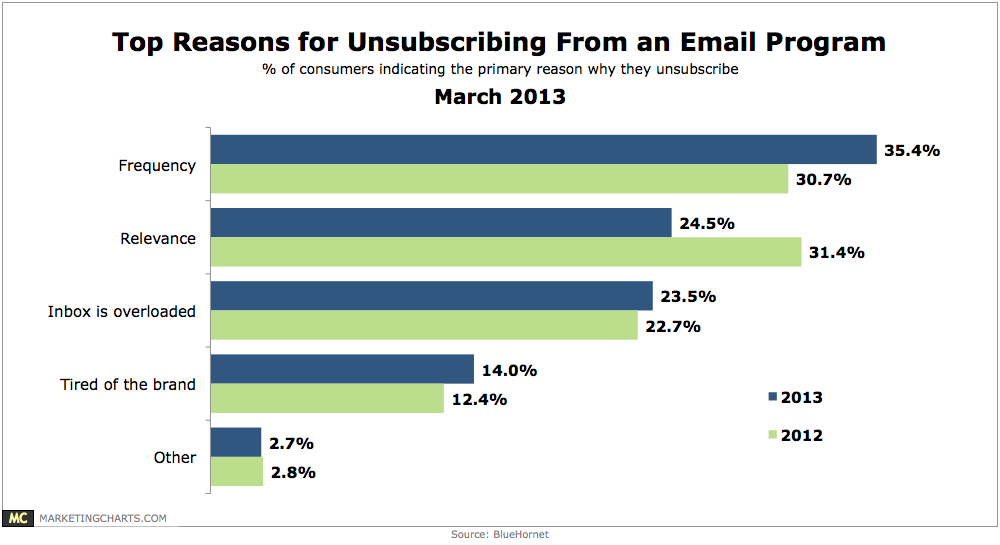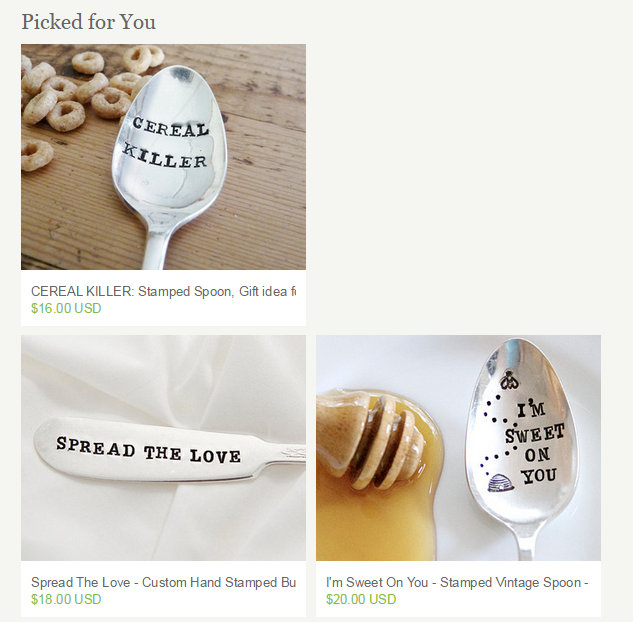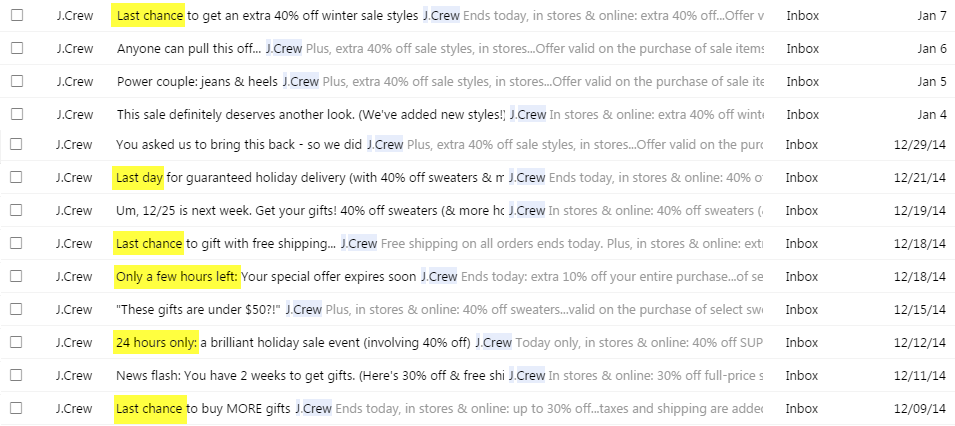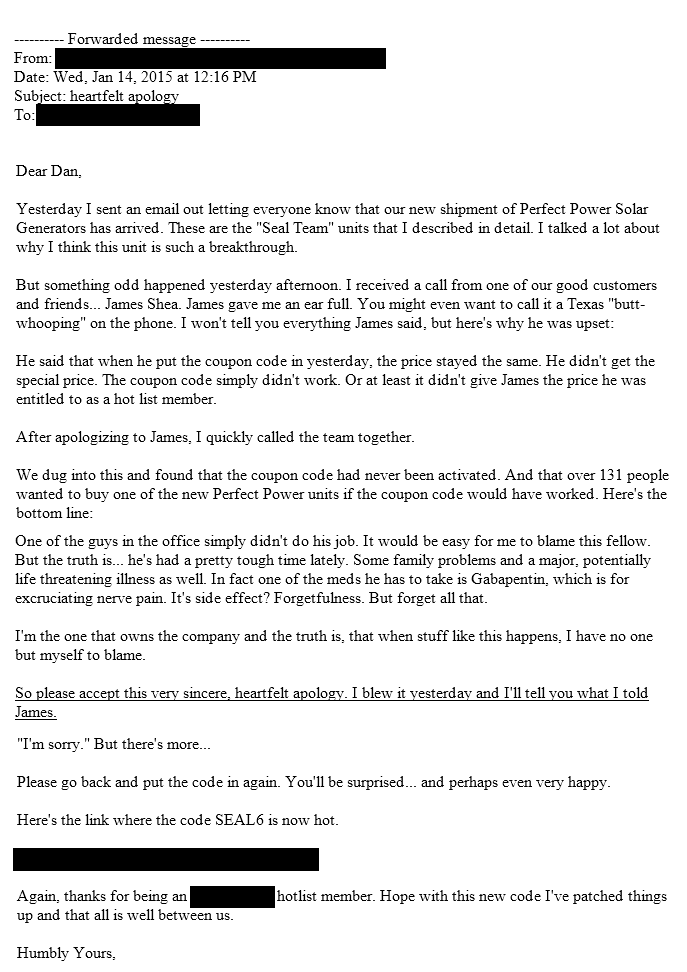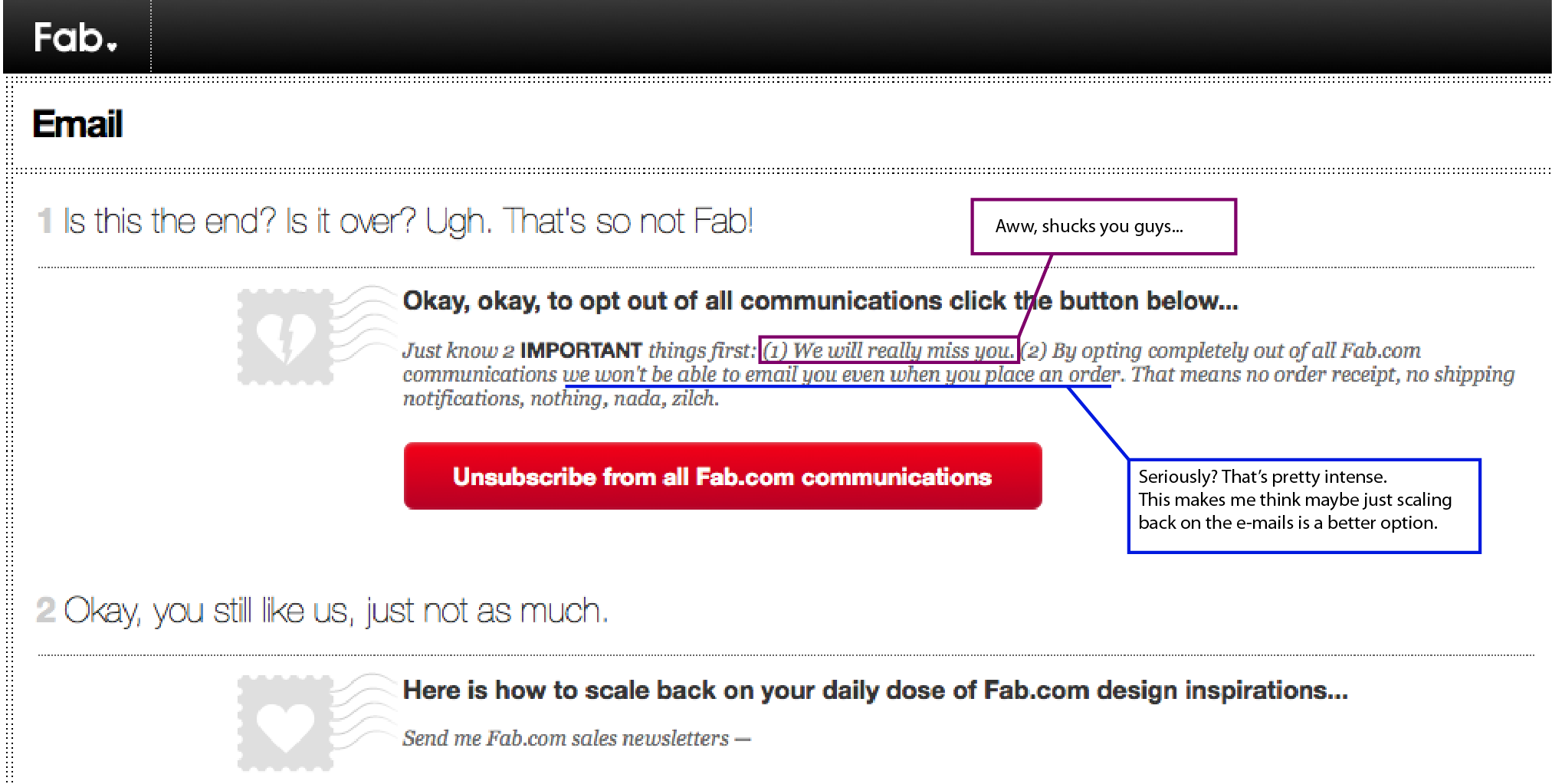We’re pretty big fans of email marketing here at WordStream, and over the past year or so we’ve been sharing all our best advice on creating effective email marketing campaigns.
But it’s not enough just to build up a big list. You also need to take steps to ensure you aren’t pissing your readers off, causing them to unsubscribe forthwith.

It’s not you, it’s me. No wait – it’s you.
One of the most common causes of email unsubscribes is email volume/frequency – people may have signed up for your list expecting an email every week or so, and be unpleasantly surprised to see new messages from you in their inbox every day.
via Marketing Charts
But here are a few less obvious email marketing mistakes you could be making that turn subscribers off.
Email Marketing Mistake #1: Over-Personalization
I’m on the verge of unsubscribing from Etsy’s emails (which I used to love!). Why? Because they have become over-personalized or, perhaps I should say, poorly personalized.
Here’s what I mean: Despite a varied purchase history over the course of several years, all my Etsy emails from the past several months have been full of promos for the same seller – thanks to one item I purchased from that seller as a gift.
The emails used to surface all kinds of cool stuff that I probably wouldn’t have gone searching for on my own – jewelry, bags, funky household doo-dads, etc. Now they’re full of engraved spoons:
I am so sick of seeing these spoons! And I’m highly unlikely to ever buy another one. Meanwhile, Etsy is missing the opportunity to show me other items and shops that might actually spur me to purchase.
How to fix the mistake
If your emails are set up to show similar items after a subscriber makes a purchase, put some kind of cap on the amount of time that they continue to see that same type of item. Or consider not showing them the same types of item at all – for example, if someone buys a fancy digital camera, they’re unlikely to buy another one anytime soon (but they might be interested in camera accessories, like a case or filters).
Email Marketing Mistake #2: The Brand Who Cried Wolf
One of the best ways to get people to open your email is to create a sense of urgency. For example, if you’re running a short-term sale or special offer, let people know that it’s their last day to save 40 percent or get free shipping.
Here’s what not to do: Don’t create a completely false sense of urgency and then proceed to keep playing the urgency card again and again, week after week.
J. Crew is particularly guilty of this email crime. They are literally always running a sale – some individual code might expire, but another one is bound to pop up in my inbox tomorrow. So the urgency feels like a big fat lie and I no longer pay any attention to it.
How to fix the mistake
If you do have sales running all of the time, maybe make that part of your brand’s value proposition, instead of pretending that your sales are rare and special events.
Email Marketing Mistake #3: Phony Sincerity
Speaking of lies and deceptions, let’s talk sincerity.
There will come a time – if it hasn’t happened already – that your business makes a mistake and you have to apologize for it. When that time comes, take responsibility for your actions and do what you can to correct them.
But don’t lay it on so thick that your readers can smell the insincerity from across three time zones. Don’t use it as an underhanded opportunity for self-promotion. And definitely don’t make excuses, blame one person at your company, or invent an irrelevant sob story, as in this over-the-top “heartfelt” example:
Yeesh.
How to fix the mistake
If you have to send a one-off apology email, keep it simple and direct. Correct the mistake and move on.
Email Marketing Mistake #4: Your Unsubscribe Process Is Broken
Having no unsubscribe button at all is illegal. But assuming you do have one, make sure it actually works! Users shouldn’t have to take multiple steps or re-enter their email address, and the unsubscribe shouldn’t take weeks to go into effect.
You may think that if people want off your list, they’re of no value to your business anymore and it doesn’t matter how you treat them. But remember, just because people don’t want to receive your emails, that doesn’t mean they’re done with your brand completely or won’t continue to shop with you. So it’s best to keep the unsubscribe process simple, clean, and effective so they leave the email list without a bad taste in their mouths. They’ll be much more likely to interact with your brand again in the future.
In fact, if you keep it real classy, you might even be able to prevent them from leaving. My colleague Meg actually decided not to unsubscribe from a Fab email list due this clever messaging on their unsubscribe page:
How to fix the mistake
Look for an email marketing provider that offers a simple one-click unsubscribe process, then test it to make sure it works. Consider a customized unsubscribe page that lets your soon-to-be-former subscriber know that you value their readership.
What’s the worst email marketing mistake you’ve made or seen?
